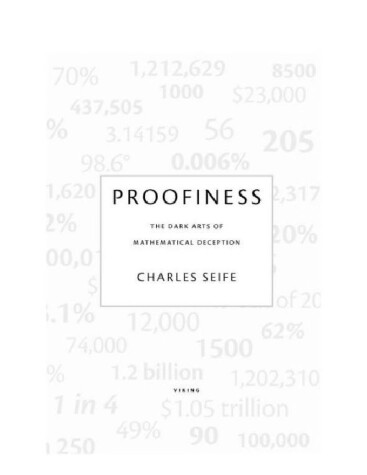
The bestselling author of "Zero" shows how mathematical misinformation pervades-and shapes-our daily lives. According to MSNBC, having a child makes you stupid. You actually lose IQ points. "Good Morning America" has announced that natural blondes will be extinct within two hundred years. Pundits estimated that there were more than a million demonstrators at a tea party rally in Washington, D.C., even though roughly sixty thousand were there. Numbers have peculiar powers-they can disarm skeptics, befuddle journalists, and hoodwink the public into believing almost anything. "Proofiness," as Charles Seife explains in this eye-opening book, is the art of using pure mathematics for impure ends, and he reminds readers that bad mathematics has a dark side. It is used to bring down beloved government officials and to appoint undeserving ones (both Democratic and Republican), to convict the innocent and acquit the guilty, to ruin our economy, and to fix the outcomes of future elections. This penetrating look at the intersection of math and society will appeal to readers of "Freakonomics" and the books of Malcolm Gladwell.
Page 139: "Ramsey County's voter turnout list seemed to have been lovingly maintained by a pack of wild raccoons."
The above quote is representative of this book about how people use numbers in misrepresentative ways. It's a breezy read that's relevant to people who might raise an eyebrow at the idea of reading about math. A lot of the concepts were ones I learned in college in my social science classes, but Charles Seife applied them to very recent events such as the Franken v. Coleman election and the economic meltdown. I felt like the book lost a little bit of its focus and power once it started reaching back further in history to discuss the OJ Simpson trial and Vietnam, but all together it was a worthwhile read.
Reading updates
-
Started reading
-
10 February, 2011:
Finished reading
-
10 February, 2011:
Reviewed
